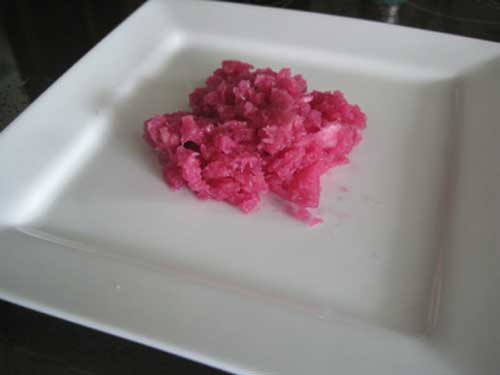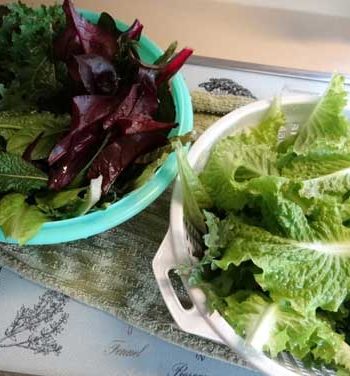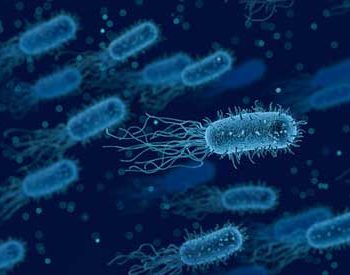This post contains affiliate links, which means I may earn some money if you click on one. Don't worry, there is no additional cost to you. Thank you for supporting my blog.
There is a controversy that has not made the main stream news yet, but some local news outlets have covered this. Apparently mothers are observing neurological changes in their children after using the laxative Miralax. I first heard of this a few weeks ago, and it is very concerning. I have not personally used this product, but it is common for Pediatricians to prescribe it to children who are constipated even though it is not labeled for children. I have had a few friends ask me about natural options to deal with this constipation issues. I do believe an ounce of prevention is worth a pound of cure, and so far I have not had this problem with my daughter. She literally goes every day, and her gut health has been very good. (On the bristol stool test her stools are exceptional). So I thought I should write a post about how to avoid this problem with children, and what to do if your child is not going to the bathroom frequently.
Some doctors will say there are different variations of normal and that going once every 5-7 days is normal. I’m sorry, I don’t believe that. My dog poops every day. I think healthy is “going” every day. So I have been skeptical of any health practitioner that told me going once a week is normal, (yes a doctor told me that before). I don’t accept that as healthy and neither should you.
If you are a new mom, or mom-to-be, do your best to protect the delicate ecosystem in your child’s gut. If you are pregnant you can do this by taking a lot of probiotics and eating lactofermented foods. If you do this not only will you improve YOUR gut microbiome, but you increase your chances of avoiding antibiotics during labor. (If you test positive for GBS your doctor will want to put you on IV antibiotics during birth. You can deny the antibiotics, or retest later in the pregnancy for this bacteria, but there are obvious concerns if this bacteria is present). I think it is best to try to avoid a GBS diagnosis altogether.
If you are a pregnant mother, another way to give your baby a “good start” with gut health is to have a vaginal birth. The gut microbiome of a baby is established during the birthing process. Basically a baby is seeded with microbes when the baby comes through the birth canal. (This is another reason to take probiotics and eat lactofermented food when you are pregnant). An unfortunate trend in modern America is medical birth via C-section. It IS sometimes MEDICALLY NECESSARY and unavoidable. However, the rates of C-section birth in America should be around 10-15%. Sadly, in America the C-section rate is a lot higher. Perhaps I should write a post about the reasons why the C-section rates are higher in this country. I personally believe that liability plays a large role, if a doctor performs a C-section, then he has done everything possible to make sure the baby is safe. But that is a post for a different day.
If you are a new “mother to be” and you know you will need a c-section there is something you can do to transfer your gut bacteria to the baby, even if he or she is not born vaginally. It is called “seeding”, and it is something that is not main stream yet but worth looking into. My daughter was in the breech position during my last pregnancy and I planned on doing this “seeding” if she did not turn and I had to have a c-section in the hospital. I watched this TED talk a few years ago and the speaker did the “seeding” with his child, who was born by emergency c-section. It is definitely worth putting it in your birthing plan, even if it seems a little strange.
Once the baby is born, breastfeeding is another way to help your child establish a good gut microbiome. If for some reason you cannot breastfeed you can give your baby probiotics. I highly recommend BioGaia probiotics. I gave them to my daughter even though she was breastfed. The species in this probiotic, Lactobacillus reuteri, is derived from breast milk. There are other probiotics available for infants but this is the only brand/species I have personal experience with. Don’t be afraid of them, probiotics are so important for health, and none of us have the microbiome our ancestors had. Talk to your doctor about it first if you are not sure.
Is it any wonder so many kids have gut problems? In America it has become very difficult to give our children a “good start” with gut health. Most of the questions I have gotten are with regards to older children. So what can be done if a child is currently struggling with constipation issues?
Diet
I know, I know, the hardest thing to change. Do you have a child who simply does not like fruit and vegetables and lives on cereal, peanut butter and jelly, and pasta? I understand that, not because my daughter eats that way, but because I was that child. I was a carboholic and I did not really like fruits and vegetables. Diet is a big reason for regularity issues. The problem can be two-fold, gluten and dairy can cause gut problems too, but lack of fiber should not be overlooked. I used to have horrible eating habits, so I understand the struggle parents face. The struggle is real. If your child is constipated, try incorporating more fruit into the diet right away. I say fruit because it will be an easier sell with a picky child. My daughter eats a little bit of fruit every day and so far she has not been constipated. It might not be that simple, but it is a good place to start. If your child eats mostly dairy and wheat products, and nothing else, chances are he or she has an undiagnosed food sensitivity. (Don’t shoot the messenger please, dairy and gluten can literally be addictive if not digested completely). You may have to do a complete diet overhaul, which is not easy with a picky eater. However, adding fruit and berries is a good start.
(An easy way to do this is to make ice pops using fruit that has been mixed with a high power blender. The fruit will still have the fiber, and the texture might be more tolerable to a picky eater).
Probiotics
It is never too late to add in probiotics. There are many different types to choose from, and it can be overwhelming. I wrote a post about the different brands I have used. Try a few different brands and species because most of us do not know what species we have and what we are missing. Probiotic foods are an excellent and economical way to improve your gut microbiome. I always loved sauerkraut and pickles, even in my “picky phase”. Of course I was eating the WRONG kind, you want the REAL DEAL, the lactofermented type. Bubbies is a brand you can find in stores, it will be in the refrigerated section. You can make it yourself, and it is much cheaper, but some people are not comfortable with that. I have heard stories of Kombucha fixing constipation issues as well, and there are so many flavors available in stores. (It tastes like soda, so also a good choice for the picky eater).
Minerals
Magnesium is a mineral that most of us are deficient in. Magnesium is also known to help “keep things moving”. I sprayed with magnesium when I was pregnant. (It can be absorbed through the skin). It did help me with regularity, in fact, I was not plagued with constipation at all when I was pregnant. So this is something else to consider, a magnesium deficiency. I have also used Epsom salt in the tub, for me and my daughter. So this is something else you can try, if diet and probiotics do not help. (From what I have read, most of us are deficient in magnesium. A great book to read about this is The Magnesium Miracle).
Homeopathy
Homeopathy has personally helped me the most. In fact after the birth of my second daughter I noticed I was not going as frequently as I did when I was pregnant. (I did not have any problems with regularity during either pregnancy). I am not sure what the issue was, (probable linked to hormones), but I suspect my body was not producing enough bile. I found the appropriate homeopathic remedy that matched MY SYMPTOMS, and it worked beautifully. I plan on continuing the protocol until I no longer need the homeopathic remedies.
Though homeopathy is very individualized, there are homeopathic doctors in India that have developed protocols for specific issues. They wrote a the book called The Banerji Protocols. It has become my favorite homeopathic reference. Though I have used a few of their protocols in the past for myself, I would try a different approach with my kids. If constipation became an issue I would consult with a homeopath. I have gotten to know quite a few, and I feel like this would be the proper path to take. I would not use Miralax.
If you are the stubborn type, and absolutely determined to try resolving your child’s constipation yourself, Nux Vomica 30C is a remedy you could try. Joette Calabrese, a homeopath I have worked with before, has written a post about how to use it here. I have personally used homeopathic Nux vomica 30c after overindulging in junk food, and for insomnia, (specifically waking between 2-4 am).
There are other ways to address problems with gut health, but these are the only methods I have experience with personally. The natural path is not always the easiest path, but I believe it is the healthiest. As a society we have become too accustomed to taking a pill to “fix” a problem. We have also become trained to do what the doctor says and not question it. We are the caretakers of our children and they are our responsibility. Doctors are not with your children 24/7, and will not personally witness the affects a drug has on your child, subtle or otherwise.
If there are unintended side effects with Miralax I hope they resolve the problem with it quickly, and it if cannot be resolved, appropriate actions are taken.
What are some natural remedies you have used to address gut health problems?





No Comments